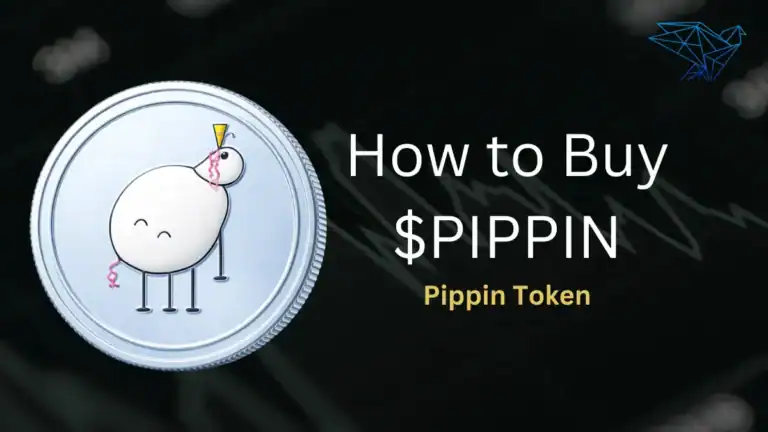Summary
Cryptocurrencies are not recognized as legal tender in Malaysia, with the Central Bank of Malaysia Act designating the ringgit as the country’s sole legal tender. However, if you’re looking to buy Tether (USDT) in Malaysia, there are several reliable exchanges to consider. Platforms like Hata and Luno are regulated by the Securities Commission of Malaysia, offering a secure and compliant environment for buying and trading USDT.
Can I Buy Tether (USDT) in Malaysia?
Yes, while not many popular crypto exchanges offer direct buying or selling options in Malaysia, a few registered exchanges like Hata and Luno allow users to directly buy Tether (USDT) using their bank accounts. Additionally, you can opt for platforms like Binance, which provide P2P services in Malaysia. These services support local payment methods, enabling you to buy Tether or other cryptocurrencies such as BTC, ETH, and several other popular options on their platform.
How to Buy Tether (USDT) in Malaysia Using Hata
Hata is one of the few exchanges registered with the Securities Commission Malaysia, allowing Malaysian users to buy and sell Tether (USDT) securely. Backed by notable investors, including the renowned crypto exchange Bybit, Hata is a promising platform. It currently supports only spot trading, with 5 popular USDT trading pairs and 11 MYR trading pairs available.
The exchange charges no fees on deposits or withdrawals for bank accounts, with maker fees set at 0% and taker fees starting at 0.24%. While Hata is a relatively new exchange with restricted access and low liquidity, comparing it to global platforms like Binance or Bybit would be unfair. However, for Malaysian users navigating strict crypto regulations, Hata stands out as a safe and secure option for buying Tether (USDT).
Best Alternatives to BYDFi for Buying Tether
Exchanges may occasionally experience downtime, or you might prefer having an additional platform as a backup for added security. In such cases, here are some alternatives to buy Tether (USDT) in Malaysia.
Luno
Luno is one of the top exchanges in Malaysia and is registered with the Securities Commission Malaysia, making it a trusted choice for Malaysian crypto users. Operating since 2013, Luno supports over 25 cryptocurrencies and is known for its strong focus on compliance and security. With spot trading fees of 0.6% for takers and 0.4% for makers, Luno is ideal for beginners and intermediate traders.
The platform offers a user-friendly interface, mobile apps for Android and iOS, and features like price alerts and recurring purchases, ensuring a seamless trading experience for Malaysian users.
Binance
Though not registered in Malaysia, Binance remains the most popular exchange among Malaysian users, offering P2P services to buy and sell cryptocurrencies using local payment methods. With over 200 million registered users as of 2024, Binance is the largest crypto exchange globally, providing a comprehensive suite of tools for crypto traders.
Featuring over 400 cryptocurrencies, up to 125x leverage, and affordable trading fees starting at 0.1% for spot trading, Binance caters to both beginner and advanced users. The platform’s extensive offerings include spot, margin, futures, staking, and even an NFT marketplace, making it a one-stop solution for crypto enthusiasts worldwide.
MYR to USDT Fees
In an ideal situation, Malaysian users would only need to pay third-party platform fees, such as those from centralized exchanges like Alchemy or Banxa, for every transaction. However, this is not always the case. Since there is no direct support for MYR deposits on registered exchanges, users may face additional fees when using banks, as they will convert MYR to USD to complete the transaction.
Additionally, when using P2P platforms, exchange rates are not fixed and can fluctuate. These rates can be higher during market resets and lower when Bitcoin is trading more stably, leading to potential variations in the cost of transactions.
Is Tether (USDT) Legal in Malaysia?
Tether (USDT) is legal to own, buy, and trade in Malaysia, though it is not recognized as legal tender. The Central Bank of Malaysia Act establishes the ringgit as the country’s sole legal tender, excluding cryptocurrencies from this status. However, cryptocurrencies, including USDT, are classified as securities under the Capital Markets and Services Order, giving them a legal standing within Malaysia’s financial regulatory framework.
While there have been calls to recognize cryptocurrencies as legal tender, particularly from government officials, the current stance remains cautious. The Shariah Advisory Council also recognizes digital currencies as property, further legitimizing their use in Malaysia’s Muslim-majority society. To ensure safety, it is crucial to use regulated exchanges when buying or trading USDT.
Bottom Line
If you’re looking to buy Tether (USDT) in Malaysia, you have reliable options like Hata, Luno, and Binance. While USDT is legal to trade, it’s essential to be mindful of potential transaction fees and fluctuating exchange rates when using P2P platforms. Always choose regulated exchanges for a secure and compliant trading experience.
FAQs
1. What is the difference between buying USDT through P2P services and using centralized exchanges?
With P2P services, you’re trading directly with other users, often with more flexible payment options. Centralized exchanges like Hata and Luno handle the transaction for you, ensuring compliance with regulations and providing added security.
2. Are there any Shariah-compliant considerations for buying USDT in Malaysia?
Yes, the Shariah Advisory Council recognizes digital currencies like USDT as property, which aligns with Islamic principles. However, it’s advisable to use regulated platforms for a compliant and ethical trading experience.
3. What payment methods are supported for buying USDT in Malaysia?
Hata and Luno support direct bank transfers, while Binance’s P2P services accept methods like online banking, e-wallets, and credit/debit cards.
4. What happens if I buy USDT on an unregistered exchange in Malaysia?
Using unregistered exchanges poses risks such as lack of legal protection, potential scams, and issues with fund recovery. It’s recommended to stick to platforms registered with the Securities Commission Malaysia.




